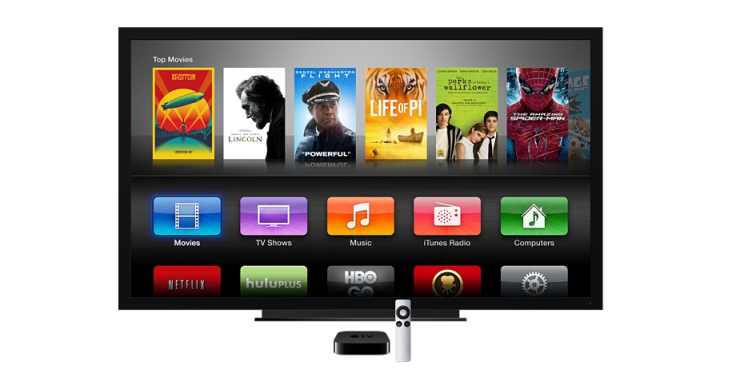Apple TV Rumors: Less Ambitious Set-Top Box May Be A Disappointment To Cord Cutters

With Q1 2014 well under way, new details have emerged this week about the highly anticipated and rumored update for the Apple TV.
Unfortunately for the growing number of cord cutters, or households that choose to go without a cable television subscription, the next generation Apple TV may not have the cable-killer features they were hoping for.
In fact if the rumors are correct, Cupertino, Calif. based Apple may be shifting the Apple TV more towards a model that works with existing cable television providers.
According to a new Wall Street Journal report, Apple (NASDAQ:AAPL) is in talks with “at least two big media companies,” which also includes cable giant Time Warner Cable (NYSE:TWC).
What does this mean for the Apple TV? Instead of Apple attempting to negotiate with media companies on their own, it would rely on partnered cable providers to handle negotiations and acquisitions of programming rights, people familiar with the matter told the WSJ.
To make matters more complicated, Comcast (NASDAQ:CMSCA) is planning to purchase Time Warner Cable in an all-stock purchase deal.
It is unknown if federal regulators will approve such an acquisition, which has already seen considerable pushback from media consolidation opponents. However, the deal could be a concern for the Apple TV if it is completed, since Comcast has been looking to aggressively promote its own interactive “cloud” video service, the X1 platform.
Apple has had problems in negotiating with content providers, especially Comcast and DirectTV (NASDAQ:DTV), according to Bloomberg.
While its yet to be seen if the deal between Time Warner Cable and Comcast will affect any content deals with Apple, the WSJ reports considerable compromises in the next-gen Apple TV.
Among the compromises: disabling fast-forwarding on newly aired shows for three days and offering only the five most recent episodes of a television show instead of an entire season.
Since the introduction of the Apple TV set-top box back in 2007, the set-top digital media player market has grown increasingly crowded with devices from Western Digital (NASDAQ:WDC), Roku, Google (NASDAQ:GOOG) and Smart TVs from major television manufacturers.
This increased competition will indubitably put pressure on Apple to deliver an Apple TV that meets and even exceeds expectations upon its unveil this 2014.
The Apple TV may be unveiled sometime in April. However, it’s possible it won’t be available for purchase until sometime in the 2014 winter holiday season.
© Copyright IBTimes 2024. All rights reserved.





















